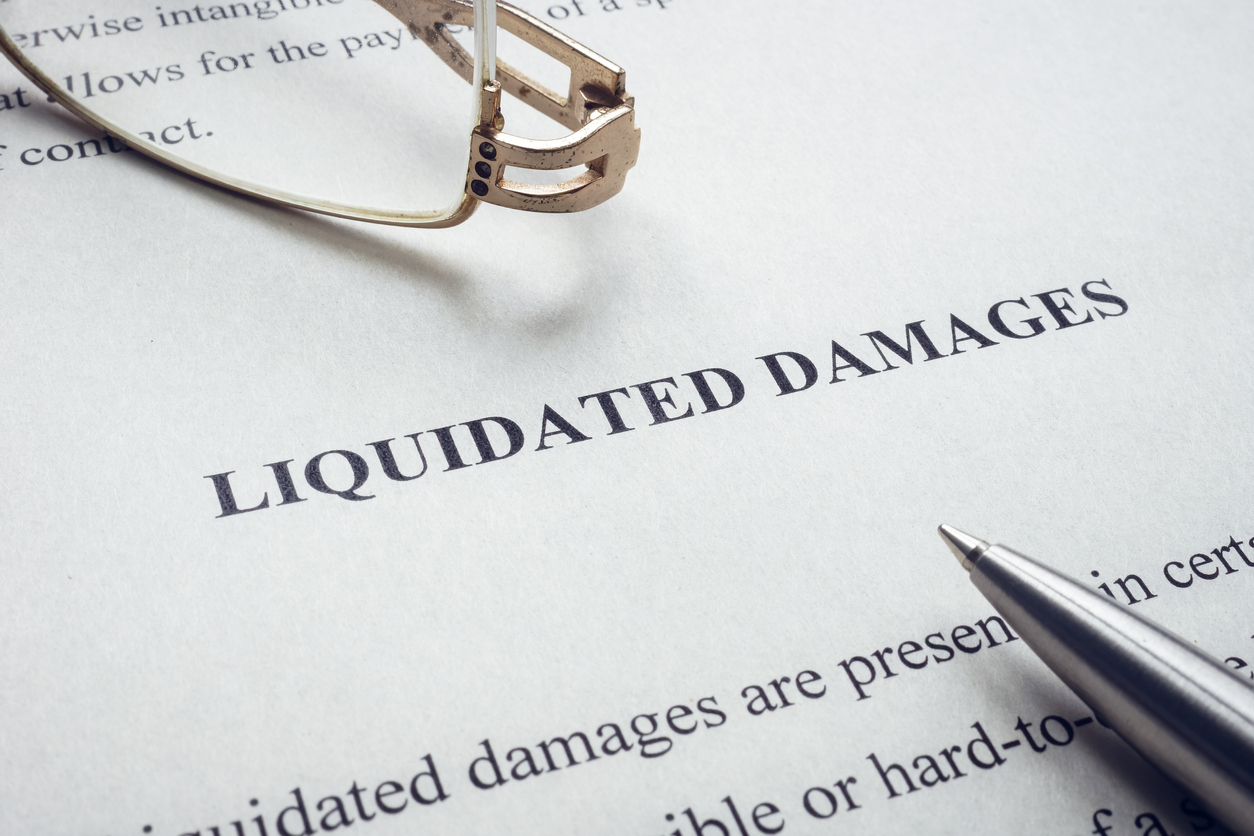

Updated on April 4, 2024
Liquidated damages in real estate are a critical aspect of contract law, particularly in California. These damages are predetermined amounts specified in a contract to compensate for losses that are difficult to quantify in the event of a breach.
This article delves into the intricacies of liquidated damages, focusing on their application in California real estate, guided by the provisions of California Civil Code Section 1671.
It also offers practical advice for navigating these provisions, drawing on the expertise of Schorr Law, a firm with extensive experience in real estate disputes.
Key Takeaways:
Liquidated damages are a pre-negotiated set amount of damages contained in a contract that is available to the injured party to compensate them for otherwise difficult to calculate losses stemming from a breach of contract.
In other words, they are agreed upon set amount of damages that the parties agree upon at the beginning of the contract before any breach occurs. Liquidated damages are a common part of almost all real estate contracts in the State of California.
California Civil Code Section 1671 provides the rules for interpreting liquidated damages as follows:
(a)This section does not apply in any case where another statute expressly applicable to the contract prescribes the rules or standard for determining the validity of a provision in the contract liquidating the damages for the breach of the contract.
(b) Except as provided in subdivision
(c), a provision in a contract liquidating the damages for the breach of the contract is valid unless the party seeking to invalidate the provision establishes that the provision was unreasonable under the circumstances existing at the time the contract was made.
(c) The validity of a liquidated damages provision shall be determined under subdivision (d) and not under subdivision (b) where the liquidated damages are sought to be recovered from either:
(1) A party to a contract for the retail purchase, or rental, by such party of personal property or services, primarily for the party’s personal, family, or household purposes; or
(2) A party to a lease of real property for use as a dwelling by the party or those dependent upon the party for support.
(d) In the cases described in subdivision (c), a provision in a contract liquidating damages for the breach of the contract is void except that the parties to such a contract may agree therein upon an amount which shall be presumed to be the amount of damage sustained by a breach thereof, when, from the nature of the case, it would be impracticable or extremely difficult to fix the actual damage.
In other words, the law provides that the liquidated damages provision is valid provided the terms of the liquidated damages were not unreasonable at the time the original contract was made.

A clause calling for liquidated damages is presumed valid in a real estate sales contract for the sale of owner occupied residential real property consisting of 4 units or less provided the parties comply with the terms of the California Civil Code.
In California purchase and sale truncations, the liquidated damages provision is invalid if it exceeds 3% of the purchase price unless the party seeking to enforce the liquidated damages provision establishes that the liquidated damages are reasonable.
This begs the question of how you determine reasonableness. In real practice, reasonableness may be determined by factors like market conditions, seller’s carrying costs, time off the market, and other consequential damages the seller may experience if the sale falls apart.
Most purchase and sale transactions in California, whether commercial or residential use standardized forms. Regardless, the liquidated damages provision must be separately signed or initialed by each party to the contract and must be 10 point bold type font or red print of at least 8 point bold type font. Civil Code section 1677.
At Schorr Law, we frequently see and litigate disputes concerning a seller of real property’s attempt to retain the buyer’s initial deposit as liquidated damages. Here are a few tips we can offer regarding liquidated damages:
At Schorr Law, we have done a high volume of cases involving disputes over liquidated damages. Our robust real estate practice involves decades of experience helping parties resolve these escrow disputes. For help with your dispute, please do not hesitate to contact us: [email protected], 310-954-1877.